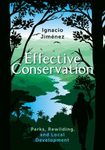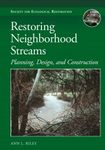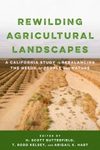By: Joe Landsberg(Author), Richard Waring(Author)
209 pages, 16 b/w illustrations, 5 tables
![Forests in Our Changing World Forests in Our Changing World]()
Click to have a closer look
About this book
Contents
Customer reviews
Biography
Related titles
About this book
Scientists tell us that climate change is upon us and the physical world is changing quickly with serious implications for biodiversity and human well-being. Forests cover vast regions of the globe and serve as a first line of defence against the worst effects of climate change, but only if we keep them healthy and resilient. Forests in Our Changing World tells us how to do that. Authors Joe Landsberg and Richard Waring present an overview of forests around the globe, describing basic precepts of forest ecology and physiology and how forests will change as earth's climate warms.
Drawing on years of research and teaching, they discuss the values and uses of both natural and plantation-based forests. In easy-to-understand terms, they describe the ecosystem services forests provide, such as clean water and wildlife habitat, present economic concepts important to the management and policy decisions that affect forests, and introduce the use of growth-and-yield models and remote-sensing technology that provide the data behind those decisions. Forests in Our Changing World is a useful guide for undergraduates as well as managers, administrators, and policy makers in environmental organisations and government bodies looking for a clear overview of basic forest processes and pragmatic suggestions for protecting the health of forests.
Contents
Preface
Acknowledgements
Chapter 1. Introduction: A long look back, and a look into the future
Forests in human history
Resilience
Outline of the rest of the book
A look into the future
Chapter 2. Forest types around the world
The main forest types
On being evergreen or deciduous
Boreal forests
Temperate forests
Tropical forests
Plantations and managed forests
Summary
Chapter 3. Weather and climate determine forest growth and type
How trees grow
Weather factors: Temperature
Weather factors: Solar radiation
Weather factors: air humidity
Weather factors: Precipitation and hydrology
Implications of forest clearance for hydrology and climate
Summary
Chapter 4. The causes and consequences of rapid climate change
The causes of global warming
Fossil fuel burning and land use change
How fast is the earth warming?
A word about denialists
On variation and uncertainty
Extreme weather events
The impacts and implications of climate change
Summary
Chapter 5. How we value and use forests
Ecosystem services and universal values of forests
The uses of forests
Abuses of forests
Summary
Chapter 6. The economics and practices of forest management
An outline of relevant economic theory
Micro-economics: Commercial operations on state land
Micro-economics: Commercial operations on private land
Forest growth and yield estimates
Fire and its management
Summary
Chapter 7. The future for forests
Conserve the forests
Management for the future: natural forests
Management for the future: plantations
Concluding remarks
Glossary
References
Customer Reviews
Biography
Joe Landsberg is a forest scientist and consultant with a long history of active international scientific collaboration studying the role of climate and weather on global forests. During his illustrious career, he has served as chief of the CSIRO Division of Forest Research, worked for NASA in its Terrestrial Ecology Program, and, together with Richard Waring, developed a landmark computer model for CSIRO to assess the influence of climate on the growth and yield of forests.
Richard Waring is emeritus distinguished professor of forest science at Oregon State University. In his long career, he has held guest and visiting professorships at leading institutions around the world, and has served as administrator of a NASA program exploring land-atmosphere interactions and as a long-term consultant to NASA on forest modelling projects.
By: Joe Landsberg(Author), Richard Waring(Author)
209 pages, 16 b/w illustrations, 5 tables
"Forests in Our Changing World provides an insight and sobering look at the status of our forests. Forestry professionals, land managers, naturalists, ecologists, and students of these subjects will appreciate this work."
– Wildlife Activist
"In just seven chapters this readable book presents an overview of the whole gamut of forestry and forest-related activities today and looks to the future in a changing world."
– BC Forest Professional
"The book offers much food for thought regarding the future of these ecosystems."
– CHOICE
"Forests in Our Changing World is a useful primer that will introduce students and the interested public to the field of forestry."
– San Francisco Book Review
"Based on a deep knowledge of the physiology and ecology of forests, with a focus on the tensions between managing for their ecosystem service values and immediate economic values, this is an excellent, authoritative book on what is needed to maintain and use forests in a rapidly changing world."
– Brian Walker, CSIRO, Australia
"Global forests provide wood, but also ecosystem services such as clean water, carbon storage, and biodiversity. Forests in Our Changing World explains the complex interactions between forests and their environment and highlights the risks of nonsustainable management."
– Sune Linder, Professor Emeritus of Forest Ecology, Swedish University of Agricultural Sciences
"Two experienced researchers and teachers bring together a deep understanding of how forests work and a sobering look at their status in a rapidly changing world. Landsberg and Waring combine history, science, and clear thinking about the future in a book that will be a valuable addition to introductory classes at the college level."
– John Aber, Professor, Environmental Science, University of New Hampshire




































